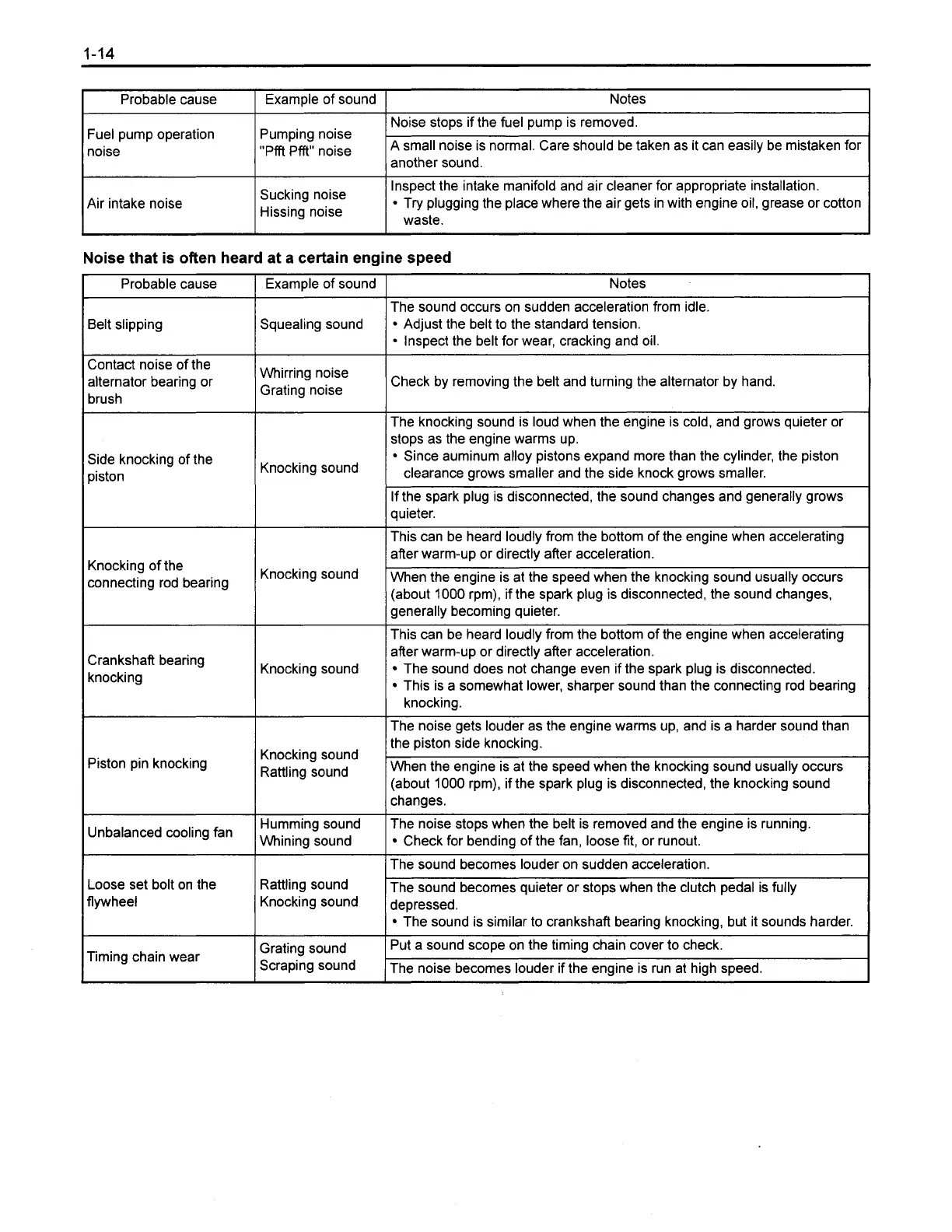Probable cause
I
Example of sound
I
Notes
Fuel pump operation
noise
Air intake noise
Noise that is often heard at a certain engine speed
Pumping noise
NPm Pm"
noise
Sucking noise
Hissing noise
Probable cause
Noise stops if the fuel pump is removed.
A
small noise is normal. Care should be taken as it can easily be mistaken for
another sound.
Inspect the intake manifold and air cleaner for appropriate installation.
Try plugging the place where the air gets in with engine oil, grease or cotton
waste.
I
Belt slipping
Contact noise of the
alternator bearing or
Side knocking of the
piston
Knocking of the
connecting rod bearing
Crankshaft bearing
knocking
Unbalanced cooling fan
+
Loose set bolt on the
flywheel
Timing chain wear
I
Example of sound
I
Notes
Squealing sound
The sound occurs on sudden acceleration from idle.
Adjust the belt to the standard tension.
Inspect the belt for wear, cracking and oil.
Whirring
noise
Grating noise
I
This can be heard loudly from the bottom of the engine when accelerating
Check by removing the belt and turning the alternator by hand.
sound
The knocking sound is loud when the engine is cold, and grows quieter or
stops as the engine warms up.
Since auminum alloy pistons expand more than the cylinder, the piston
clearance grows smaller and the side knock grows smaller.
If the spark plug is disconnected, the sound changes and generally grows
quieter.
Knocking m~nd
1
knocking.
after warm-up or directly after acceleration.
When the engine is at the speed when the knocking sound usually occurs
(about
1000
rpm), if the spark plug is disconnected, the sound changes,
generally becoming quieter.
This can be heard loudly from the bottom of the engine when accelerating
Knocking sound
after warm-up or directly after acceleration.
The sound does not change even if the spark plug is disconnected.
This is a somewhat lower, sharper sound than the connecting rod bearing
Knocking sound
Rattling sound
Humming sound
Whining sound
Rattling ~~nd
Knocking sound
The noise gets louder as the engine warms up, and is a harder sound than
the piston side knocking.
When the engine is at the speed when the knocking sound usually occurs
(about
1000 rpm), if the spark plug is disconnected, the knocking sound
changes.
The noise stops when the belt is removed and the engine is running.
Check for bending of the fan, loose fit, or runout.
The sound becomes louder on sudden acceleration.
The sound becomes quieter or stops when the clutch pedal is fully
depressed,
Grating sound
Scraping sound
he
sound is similar to crankshaft bearing knocking, but it sounds harder.
Put a sound scope on the timing chain cover to check.
The noise becomes louder if the engine is run at high speed.

